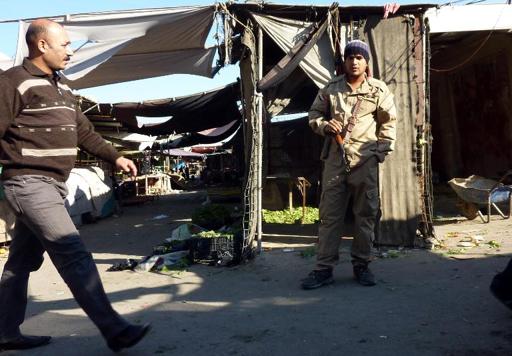Bombs exploded in a market near a church in the Iraqi capital on Wednesday, killing 35 people and wounding more than 50, the interior ministry said.
The blasts come as Iraq suffers its worst violence since 2008, when it was just emerging from a brutal period of sectarian killings, raising fears that the country is slipping back into all-out conflict.
"Two roadside bombs exploded in a popular market in Dura, killing 35 people and wounding 56," interior ministry spokesman Saad Maan told AFP, referring to a south Baghdad area
Security officials had initially said that a car bomb targeted the St. John church in Baghdad in addition to the market blasts, but Maan, a priest from the area as well as the Chaldean patriarch all denied this.
"The attack was against a... market and not a church," Maan said, while adding that "the targeted area is a mix of Muslims and Christians."
"The church has nothing to do with the attack," Archdeacon Temathius Esha, an Assyrian priest in Dura told AFP, adding that "the attack was against the market".
And Chaldean Patriarch Louis Sako said that "the attack targeted poor people in a place close to the church in Dura."
Militants frequently attack places where crowds of people gather, including markets, cafes and mosques, in an effort to cause maximum casualties.
Analysts say widespread discontent among Iraq's minority Sunni Arab community is a major factor fuelling the surge in unrest this year.
The 33-month war in Syria, which has bolstered extremist groups, has also played a role.
And although the government has made some concessions aimed at placating Sunni Arabs, including freeing prisoners and raising the salaries of Sahwa anti-Qaeda fighters, underlying issues remain unaddressed.
More than 6,650 people have been killed in Iraq since the beginning of 2013, according to AFP figures based on security and medical sources.





















































